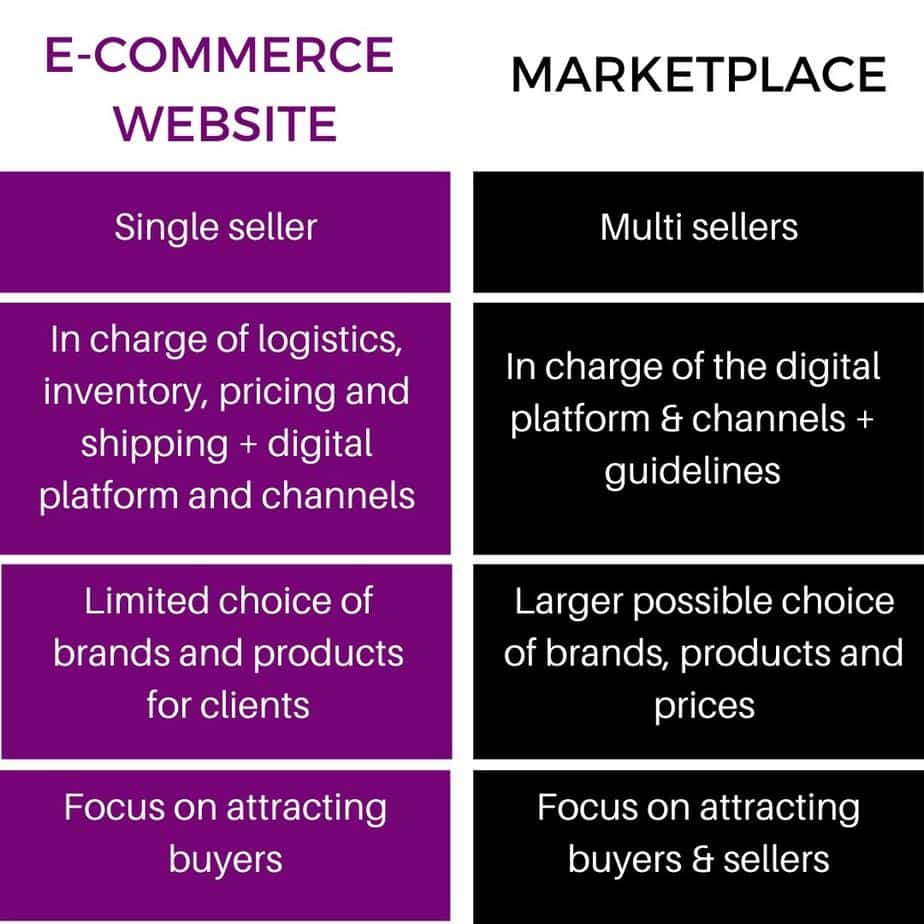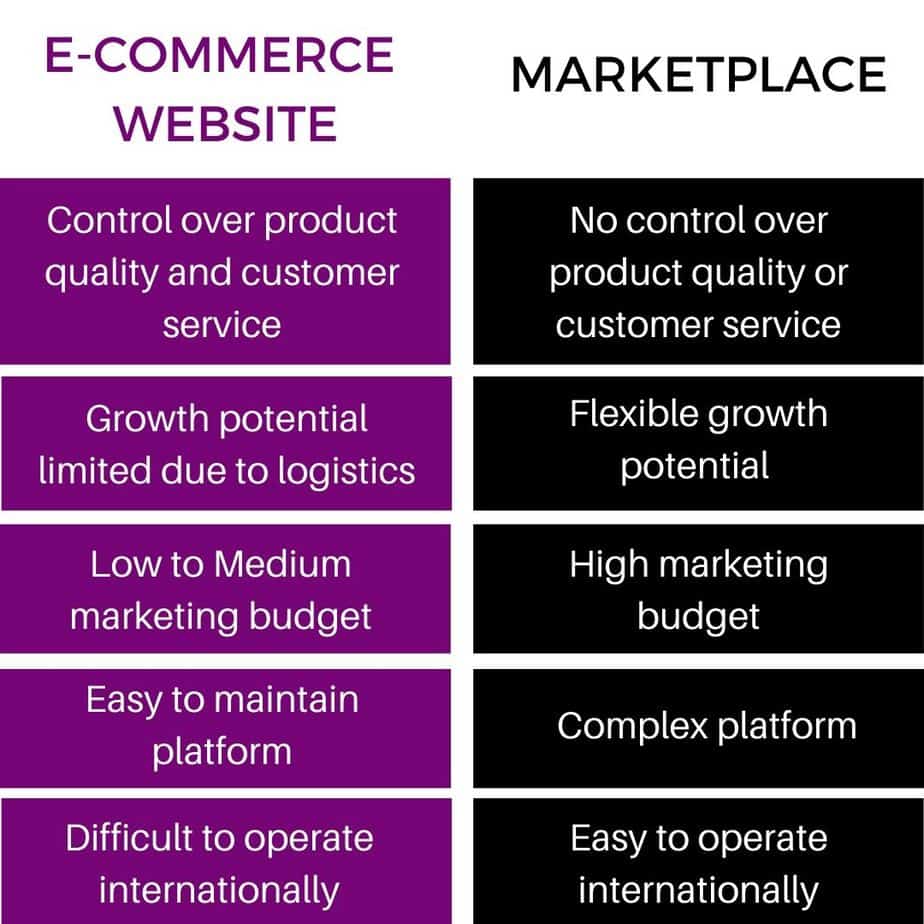After launching our first marketplace last week, we realised, from the comments of our clients and encourage, that most people are confused about the difference between a marketplace and eCommerce. That’s understandable; nowadays, the digital world offers thousands of options and features for websites. Thus, we find it important of to share the differences between both. Let’s explore the difference between marketplaces and eCommerce websites.
“They both sell stuff online, so why aren’t they the same?”
Despite the fact that they are both used for online business, their concepts are different. A marketplace is an online platform where the website owner allows third-party vendors to sell on the platform and invoice customers directly. Different sellers can advertise their goods to customers via the marketplace. It’s like a farmer’s market with different sellers and buyers, but all the transactions pass through the marketplace server, and all sellers and buyers have to respect the marketplace guidelines. In exchange for providing clients and facilitating sales, the marketplace takes a commission fee before paying the buyer.
Through an eCommerce website, a single store owner sells products. The website owner still bills the consumer and collects the GST. There is no choice but to register as a seller. Only the website owners can sell on this digital platform, and they are responsible for the quality of the product and the shipping.


Different client base
While in the eCommerce website business, you must concentrate on attracting customers, in a marketplace, you must attract not only buyers but also sellers, who will shape the platform’s core. Individual merchants must invest more to push traffic to their websites in eCommerce. Because the customer is limited to only one company’s products, the selection process is simplified once he or she has made a decision.
Marketplaces, on the other hand, benefit from a diverse user base. Since there are so many vendors, each one promotes the marketplace on their own, resulting in a viral spread of information. The more satisfied customers are, the more likely they are to transact on the platform.
Operational costs
If you choose to operate your own eCommerce website, you will need to buy stock, pay for a warehouse, shipping fees, logistic fees, and large marketing fees to compete with bigger competitors, including marketplaces.
If you choose to create a marketplace, most of your costs will be related to digital channels. The development and maintenance fees for a marketplace will be much higher as this type of platform requires a large amount of work. The marketing fees to bring in clients and sellers will be higher as well, as it takes a substantial amount of traffic and sales to be profitable. Managing a large number of sellers and the legal fees for such a platform might be costly. However, your premises’ costs will be lower, and you won’t have to invest in stock and logistic fees to import or sell products.
Scalability
A marketplace doesn’t buy or sell goods. As a result, it poses far fewer financial risks than eCommerce websites, which must continually invest in stock that can take a long time to sell or never sell at all. As previously stated, marketplaces are more easily able to achieve economies of scale, allowing them to grow more quickly than eCommerce websites. When traffic spikes, you may need to find new vendors to keep up with the demand, but you won’t have to invest a lot of money in new inventory or storage facilities.
An eCommerce website earns a high profit by selling products, whereas a marketplace earns a percentage of sales, typically between 10% and 20%.
Pros and Cons of Each Platform:
eCommerce
An eCommerce website offers more control over all operations that go along with each purchase and will allow you to keep your full profit. All of these benefits, however, come with a lot more responsibility and assets. You must either handle all of these things yourself or hire staff to do so on your behalf, and good support isn’t cheap.
Being in control of the whole process also means being responsible for all costs. Operational costs such as facilities, logistics, stock, and shipping can come at a higher price and can be time-consuming.
Managing marketing and sales takes a lot of time; you’re in charge of not only maintaining the site but also driving traffic, which has become the greatest challenge for aspiring retailers. Building traffic is the most difficult (and often most expensive) aspect of any online company.
Want to check how the eCommerce website looks? Have a look at one of our eCommerce website, veeraa.com.au.
Marketplace
Managing a marketplace involves lower operational costs and requires large marketing efforts and skills. The advantage of it is that the lack of need for logistics offers the opportunity to grow much faster. To be profitable, a marketplace needs a large number of sellers and a much higher amount of traffic, on top of a high-maintenance and complicated platform.
The advantage of a marketplace is that they have no logistics or inventory to manage, which gives them a lot more flexibility and ability to grow than an eCommerce website.
Have a look at one of our marketplace projects at veganskin.com.au.
Still unsure of which option is best for you? Contact our team of web development experts! Explore more about our digital services.
Related Posts

Unraveling the 5 Reasons for Your Underperforming eCommerce Store
Do you have an eCommerce store? Are you planning to build one soon? Have you ever wondered why some eCommerce websites are performing well and

5 Ways to Increase Sales for eCommerce Websites
Does your eCommerce website have an amazing design? Good! A high-quality eCommerce website is necessary for this highly competitive industry. Now, you need to learn

The Five Benefits of an eCommerce Website
Do you run a local shop or business, or intend to start a retail business? This article is for you! In this article, we will



